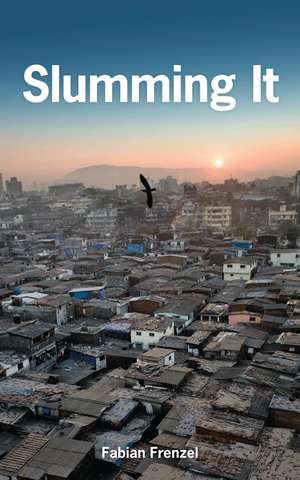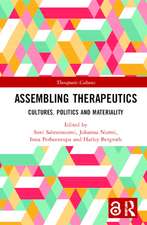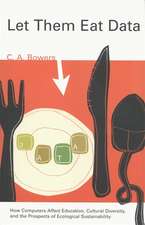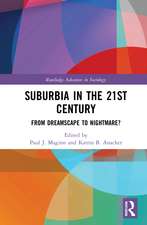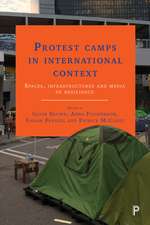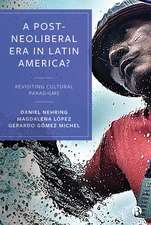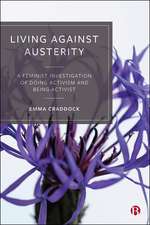Slumming It
Autor Fabian Frenzelen Limba Engleză Paperback – 14 iun 2016
Have slums suddenly become cool? Tourists across the globe seem to think so, as they increasingly hunt down favelas, ghettos, and barrios for memorable vacation experiences. A moral outrage to some critics, the rise of slum tourism nevertheless is a fascinating phenomenon that demands more detailed, nonjudgmental research than it has received up to this point.
In the provocative Slumming It, Fabian Frenzel is the first scholar to explore the intriguing motivations and consequences of this novel form of tourism with a truly accessible, open-minded approach. He examines the strange allure that slums have for wealthier visitors, and he investigates the changes this curious attraction has led to on both a small and large scale: from gentrification and urban policy reform to the organization of international development and poverty alleviation efforts. Using case studies throughout the global south—including Rio de Janeiro, Bangkok, and cities in South Africa, Kenya, and India—Frenzel provides a comprehensive study of slum tourism and a controversial take on the potentially positive impact it may have on these struggling communities in the future.
In the provocative Slumming It, Fabian Frenzel is the first scholar to explore the intriguing motivations and consequences of this novel form of tourism with a truly accessible, open-minded approach. He examines the strange allure that slums have for wealthier visitors, and he investigates the changes this curious attraction has led to on both a small and large scale: from gentrification and urban policy reform to the organization of international development and poverty alleviation efforts. Using case studies throughout the global south—including Rio de Janeiro, Bangkok, and cities in South Africa, Kenya, and India—Frenzel provides a comprehensive study of slum tourism and a controversial take on the potentially positive impact it may have on these struggling communities in the future.
| Toate formatele și edițiile | Preț | Express |
|---|---|---|
| Paperback (1) | 132.71 lei 3-5 săpt. | |
| ZED BOOKS – 14 iun 2016 | 132.71 lei 3-5 săpt. | |
| Hardback (1) | 509.12 lei 6-8 săpt. | |
| ZED BOOKS – 14 iun 2016 | 509.12 lei 6-8 săpt. |
Preț: 132.71 lei
Preț vechi: 144.31 lei
-8% Nou
Puncte Express: 199
Preț estimativ în valută:
25.39€ • 26.58$ • 21.01£
25.39€ • 26.58$ • 21.01£
Carte disponibilă
Livrare economică 15-29 martie
Preluare comenzi: 021 569.72.76
Specificații
ISBN-13: 9781783604432
ISBN-10: 1783604433
Pagini: 224
Dimensiuni: 127 x 229 x 18 mm
Greutate: 0.27 kg
Editura: ZED BOOKS
Colecția Zed Books
Locul publicării:London, United Kingdom
ISBN-10: 1783604433
Pagini: 224
Dimensiuni: 127 x 229 x 18 mm
Greutate: 0.27 kg
Editura: ZED BOOKS
Colecția Zed Books
Locul publicării:London, United Kingdom
Notă biografică
Fabian Frenzel is a lecturer in organisation studies at the University of Leicester and a senior research fellow at the University of Johannesburg. From 2012 to 2014 he was a Marie Curie Fellow at the University of Potsdam, Germany. His previous books include Protest Camps, also published by Zed Books.
Cuprins
List of Figures
Acknowledgments
Introductions
Tourism and the social question
The slum and the city
Value practices and tourist valorization
Slums in local value regimes
Disruptive valorization: putting slums on the map
Co-opting and engineering tourist valorization: policy and real estate responses
Tourist valorization in the post-Fordist care regime
Slum tourism and political activism
Conclusion
References
Index
Acknowledgments
Introductions
Tourism and the social question
The slum and the city
Value practices and tourist valorization
Slums in local value regimes
Disruptive valorization: putting slums on the map
Co-opting and engineering tourist valorization: policy and real estate responses
Tourist valorization in the post-Fordist care regime
Slum tourism and political activism
Conclusion
References
Index
Recenzii
“Based on years of embedded fieldwork, Frenzel's book cuts through the powerful mythology surrounding the so-called slums, townships, and favelas as tourist attractions to construct a revelatory narrative of the relationship between poverty and tourism, exploitation and political activism.”
“The reality of the slum is much fought over in commentary. Frenzel cuts through the confusion to evaluate the valorisation of poverty in tourism. With examples ranging across India, Brazil, Europe and South Africa, Frenzel offers an analysis, both comparative and detailed, that is a theoretically-informed advance on current scholarship.”
“Frenzel has written a very inspiring book, that is full of ideas and also deeply political. He opens up many new perspectives on slum tourism, and highlights its local and global dimensions.”
“Rich empirical evidence, expertly interrogated by notions of place valorisation, make this a fascinating piece of cutting-edge research on a fast emerging field of study. It makes a significant contribution to the available literature and is key reading for professionals and scholars alike.”
“A bold and carefully crafted analysis of slums and slum tourism. Theoretically grounded in the concepts of tourist valorization and local value regimes, it offers a nuanced and state of the art understanding of the nexus of tourism, slums and poverty.”
“This provocative and beautifully written study of slum tourism will transform your assumptions about the politics of slumming it. Drawing on rich ethnographic data, Frenzel carefully considers the activist potential of tourism to enact a relational politics of solidarity and care.”
“Frenzel’s book is definitely a provoking read, exceptional in its efforts to understand slum tourism as a global industry and a symbolic practice of valorization, rather than a hodgepodge of distinct and sometimes awkward practices.”
“Frenzel delivers a stirring text on an emerging yet controversial niche form of tourism referred to as ‘slum tourism.’ Rather than outright rejecting slum tourism on the grounds of morality, as many claim it is degrading and largely voyeuristic, the author tries to answer a social question: ‘Why does it matter that tourists visit these slums?’ . . . Highly recommended.”
“One of the most interesting books on the ‘new tourisms.’ . . . It deserves to be widely read and discussed and is worthy of a place on the shelves of anyone interested in the slum, in tourism and society, or in ‘the social question.’”
